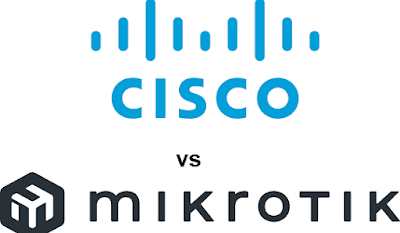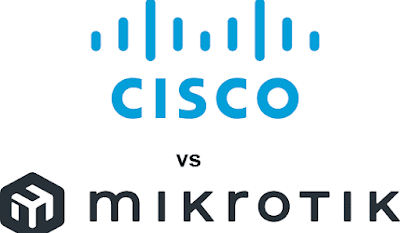Cisco vs MikroTik in 2023


Cisco vs MikroTik in 2023
In the dynamic realm of networking, choosing the right hardware and software solutions can significantly impact the efficiency and security of your corporate projects. Two prominent players in this arena are Cisco and MikroTik. As we step into 2023, let’s dive into the pros and cons of each, considering cost, security, and ease of integration.
Cisco: The Networking Behemoth
Pros:
- Robust Performance: Cisco has long been synonymous with reliability and high-performance networking equipment. Their routers and switches are designed to handle large-scale corporate networks effortlessly.
- Security Features: Cisco boasts a comprehensive suite of security features, including advanced threat detection and mitigation capabilities. For organizations placing a premium on cybersecurity, Cisco is often the go-to choice.
- Scalability: As your corporate projects grow, Cisco’s solutions scale with you. Whether it’s expanding your network infrastructure or integrating new technologies, Cisco provides the flexibility needed for seamless growth.
Cons:
- Cost: Quality comes at a price. Cisco’s products are often more expensive compared to competitors like MikroTik, making it a substantial investment for smaller businesses or startups.
- Learning Curve: The complexity of Cisco’s systems can be overwhelming for beginners. Training and certifications are often required for IT professionals to fully harness the capabilities of Cisco devices.
MikroTik: The Cost-Effective Challenger
Pros:
- Affordability: MikroTik offers a cost-effective alternative without compromising on performance. This makes it an attractive option for small to medium-sized enterprises with budget constraints.
- Flexibility: MikroTik’s RouterOS is known for its versatility. It can be adapted for various networking scenarios, making it suitable for a range of corporate projects. This flexibility is particularly valuable for organizations with diverse networking needs.
- User-Friendly Interface: MikroTik devices are often praised for their user-friendly interfaces with less learning curve. This allows quicker integration into existing networks and smoother on-boarding for IT professionals.
Cons:
- Security Concerns: While MikroTik has made strides in enhancing security features, some critics argue that it may not be as robust as Cisco in fending off advanced cyber threats. This could be a significant consideration for organizations dealing with sensitive data.
- Limited Enterprise Support: Compared to Cisco’s extensive support infrastructure, MikroTik’s support ecosystem may be perceived as limited. This could pose challenges for large enterprises with complex networking requirements.
Cost Analysis:
For many organizations, the ultimate decision boils down to the budget. Cisco’s premium offerings demand a higher upfront investment and ongoing maintenance costs. MikroTik, on the other hand, provides a cost-effective solution without compromising significantly on performance.
Security Issues:
If your corporate project involves handling sensitive data, Cisco’s robust security features may tilt the scale in its favor. However, for less security-critical applications, MikroTik’s offerings could be more than sufficient, especially considering the cost advantage.
Ease of Integration and Learning:
For projects requiring a quick setup and minimal learning curve, MikroTik’s user-friendly interface and flexibility make it an appealing choice. Cisco, while powerful, may require more time and training for seamless integration, especially for those unfamiliar with their systems.
Conclusion:
In the ever-evolving landscape of networking, the choice between Cisco and MikroTik depends on your organization’s specific needs and priorities. Cisco excels in performance and security but comes at a premium while MikroTik offers a budget-friendly alternative with flexibility and a more straightforward learning curve. Ultimately, the decision should align with your corporate project’s scale, budget, and security requirements.
Cisco vs MikroTik in 2023



